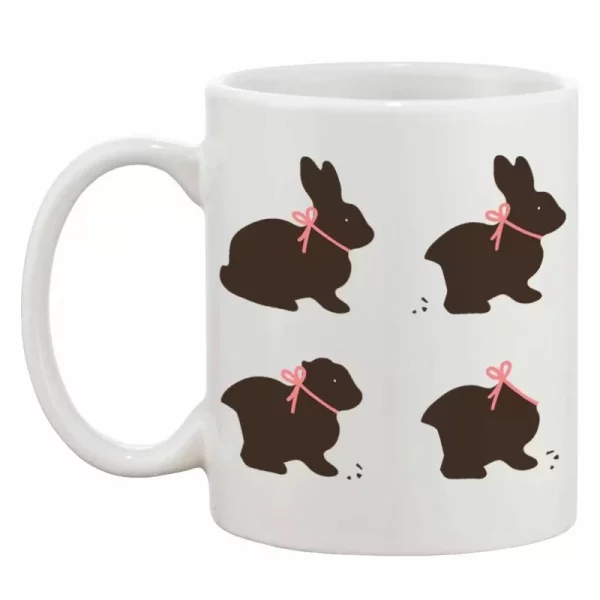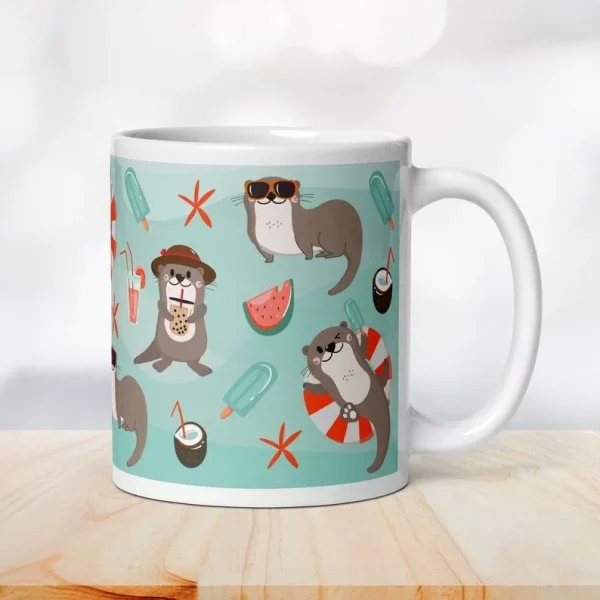
🐾 Treating Pet Anxiety and Stress 🐾
🐾 Breaking Barriers: Advances in Understanding and Treating Pet Anxiety and Stress 🐾
In recent years, the emotional well-being of our pets has gained increasing attention, with significant advances in both understanding and treating anxiety and stress in animals. This comprehensive exploration delves into the latest scientific discoveries, therapeutic innovations, and holistic approaches to enhancing the lives of our beloved pets. Let’s dive into the new frontiers of pet mental health care, where compassion meets cutting-edge science. 🌟🐶😺
Understanding Pet Anxiety and Stress
Anxiety and stress in pets can manifest in various behaviors, such as excessive barking, scratching, or more subtle signs like hiding and changes in eating habits. Scientific studies, including those published in Nature, have shown that like humans, pets can experience emotional distress that significantly impacts their quality of life.
Genetic Factors and Environmental Influences
Recent genetic mapping has provided insights into the predispositions some breeds have towards anxiety, offering potential for early identification and intervention. Environmental factors such as early socialization, trauma, and even daily household dynamics play critical roles in the development of anxiety in pets.
Innovative Treatments and Therapies
- Pharmacological Advances: The use of medications such as SSRIs (selective serotonin reuptake inhibitors) has been adapted from human medicine to animals, providing relief from anxiety symptoms under veterinary supervision.
- CBD and Alternative Therapies: Cannabidiol (CBD) derived from hemp is gaining popularity for its effectiveness in reducing anxiety without significant side effects. Other alternative therapies include acupuncture and aromatherapy, tailored specifically for animals.
- Behavioral Modification Techniques: Training methods that focus on positive reinforcement can help reduce anxiety triggers in pets, as supported by studies in The Journal of Veterinary Behavior.
The Role of Technology in Pet Anxiety Management
Wearable tech, like GPS trackers and activity monitors, now includes features to monitor signs of stress or anxiety, allowing pet owners and veterinarians to better understand and manage these conditions in real-time.
Preventive Measures and Daily Practices
- Routine and Structure: Establishing a consistent daily routine helps reduce anxiety by providing pets with a predictable environment.
- Exercise and Play: Regular physical activity and mental stimulation are crucial for alleviating stress and preventing its buildup.
- Socialization and Training: Early socialization and ongoing training are key to preventing anxiety, especially in young pets.
Supportive Resources
- Expert Advice: Regular consultations with a veterinarian or a pet behaviorist can provide personalized strategies to manage anxiety.
- Educational Content: Articles and research on sites like Wikipedia and Nature offer valuable information on pet health.
- Real-Life Stories and Tips: Publications such as The New York Times often feature stories on pet care innovations and expert advice.
- Holistic Approaches: Learn more about comprehensive pet care at HillsPet.
Custom Pet Portraits
Celebrate your pet’s individuality and journey through anxiety with a custom portrait from Meliav Digital on Etsy. These artworks not only capture the essence of your pet but also serve as a beautiful reminder of your care and dedication. Check out this expressive portrait.
Conclusion and Key Takeaways
- Holistic Understanding: Advances in science are enhancing our understanding of pet anxiety on a genetic and environmental level.
- Innovative Treatments: From pharmaceuticals to CBD, treatment options for pet anxiety are expanding.
- Daily Management: Routine care, exercise, and proper socialization are pivotal in managing and preventing anxiety.
Practical Tips from the Insights
- Monitor Behavior: Keep an eye on changes in your pet’s behavior as they can be early signs of stress or anxiety.
- Consult Professionals: Engage with veterinarians or behaviorists early to set up a plan for managing anxiety.
- Educate Yourself: Stay informed about the latest in pet health and well-being to provide the best care for your companions.
This deep dive into the advances in understanding and treating pet anxiety and stress underscores a shift towards more empathetic and scientifically-informed pet care practices. By embracing these insights, pet owners can ensure their beloved animals lead happier, more contented lives. 🌈💕
❤️ Immortalize your pet with an unforgettable portrait.🐶😺
🌟 Soothing Moves: Relaxation Exercises for Dogs and Cats, Plus Dietary Tips for Calm 🌟
Pets, like humans, can experience stress and anxiety, affecting their health and happiness. To aid in managing these conditions, this comprehensive guide will explore specific relaxation exercises tailored for both dogs and cats, alongside dietary advice to promote calmness. Embrace these techniques to foster a serene environment for your furry friends, enhancing their quality of life. 🐶😺💆♂️
Relaxation Exercises for Dogs
- Gentle Stretching: Similar to yoga, gentle stretching can relieve tension in your dog’s muscles. Start with simple stretches like the ‘play bow’ position to ease into it.
- Massage Therapy: Massaging your dog can improve circulation and decrease stress. Focus on areas like the neck, back, and paws.
- Deep Breathing Control: Training your dog to take deep breaths during stressful situations can significantly calm them. This can be achieved through slow inhalation and exhalation commands.
- Calm Interaction Sessions: Spend quiet time with your dog, petting them gently, which can greatly reduce their anxiety levels.
Relaxation Exercises for Cats
- Focused Play: Engage your cat with toys that stimulate their hunting instincts, which helps release pent-up energy and stress.
- Cat Yoga: While not traditional yoga, encouraging your cat to stretch alongside you during your routines can be beneficial.
- Grooming Sessions: Brushing your cat not only keeps their coat healthy but also helps reduce stress through soothing physical contact.
- Safe Spaces: Ensure your cat has access to quiet, comfortable places where they can retreat and feel secure.
Dietary Tips to Aid Relaxation
- Timed Feeding: Establishing a routine feeding schedule can provide stability and reduce anxiety in pets.
- Proper Nutrition: Incorporate foods rich in omega-3 fatty acids, which have been shown to improve mood and reduce stress. Ingredients like fish oil are beneficial for both dogs and cats.
- Hydration: Keep fresh water available at all times to help your pets stay hydrated and healthy.
- Treats with a Purpose: Consider treats infused with chamomile or CBD, which can have calming effects when used appropriately under veterinary guidance.
Creating a Calm Environment
- Minimize Noise: Reduce loud noises around the home, which can be a major source of stress for pets.
- Consistency and Routine: Pets thrive on routine, so keep daily activities like walks and meals at consistent times.
Supportive Resources
- Learn from Experts: Further your understanding of pet relaxation techniques on Wikipedia.
- Scientific Research: Dive into the latest studies about pet stress and dietary impacts on Nature.
- In-depth Articles: Explore comprehensive articles on pet care at The New York Times and HillsPet.
Custom Pet Portraits
Celebrate your pet’s serene moments with a custom portrait from Meliav Digital on Etsy. Discover beautiful artwork like this expressive portrait, perfect for capturing the peaceful spirit of your pet.
Conclusion and Key Takeaways
- Exercise Regularly: Both physical and mental exercises are crucial for reducing pet stress.
- Dietary Impact: What your pet eats can affect their stress levels, emphasizing the importance of a balanced diet.
- Professional Insight: Always consult with a veterinarian when introducing new elements to your pet’s diet or exercise regime.
Practical Tips from the Insights
- Be Observant: Watch for signs of stress in your pets and respond quickly.
- Engage Actively: Participate in relaxation exercises with your pets to strengthen your bond.
- Stay Informed: Keep abreast of the latest pet health research to best care for your companion.
This guide provides you with tools and knowledge to help manage and reduce stress in your pets through practical exercises and dietary adjustments. By adopting these practices, you can contribute significantly to your pet’s emotional and physical well-being, ensuring they lead a happy, relaxed life. 🌈💖

🌟 Nutrition for Peace of Mind: Foods and Supplements to Boost Pet Metabolism and Combat Stress 🌟
🌟 **Nutrition for Peace of Mind: Foods and Supplements to Boost Pet Metabolism and Combat Stress** 🌟
As pet owners, ensuring our furry friends’ health and happiness is paramount. This includes not only their physical well-being but also their mental health. Recent studies reveal that diet plays a crucial role in managing pets’ metabolism and stress levels. This comprehensive guide will delve into the foods that can help regulate metabolism and reduce anxiety in dogs and cats, alongside a curated list of reputable brands offering specialized food and supplements. Let’s nourish our pets towards a stress-free, healthier life! 🐶😺🥦
### **Metabolism-Boosting Foods for Dogs**
A proper diet can help maintain your dog’s metabolism, ensuring they burn calories efficiently and maintain healthy energy levels throughout the day.
1. **Lean Meats**: Chicken, turkey, and lean beef provide high-quality protein that’s easy for dogs to digest.
2. **Fish**: Oily fish like salmon are rich in omega-3 fatty acids, which support the thyroid gland and overall metabolic health.
3. **Vegetables**: Non-starchy vegetables like carrots, green beans, and broccoli are low in calories and high in fiber, which helps manage weight.
4. **Whole Grains**: Brown rice and barley provide sustained energy and keep the digestive system running smoothly.### **Calming Foods for Dogs**
Certain foods can naturally reduce anxiety and promote calmness in dogs.
1. **Blueberries**: Rich in antioxidants, blueberries can help reduce anxiety by combating oxidative stress.
2. **Spinach**: This leafy green is packed with magnesium, a natural relaxant that can help ease anxiety.
3. **Turkey**: Contains tryptophan, which promotes serotonin production and helps calm and relax your dog.### **Metabolism-Boosting Foods for Cats**
Cats require a diet high in protein and moderate in fats to keep their metabolism ticking effectively.
1. **Chicken and Turkey**: Great sources of lean protein that help maintain muscle mass and boost metabolism.
2. **Fish**: Provides omega-3 fatty acids, essential for a healthy metabolism.
3. **Eggs**: Highly digestible protein and packed with vital nutrients that support metabolic health.### **Calming Foods for Cats**
To help manage stress and anxiety in cats, incorporating certain foods into their diet can be beneficial.
1. **Turkey**: As in dogs, turkey can help increase serotonin levels in cats, promoting a sense of calm.
2. **Melon**: Watermelon and cantaloupe are safe for cats and can be hydrating and soothing.
3. **Cheese**: Small amounts can be comforting to cats, provided they are not lactose intolerant.### **Top Brands Offering Specialized Pet Foods and Supplements**
Several brands have developed food formulas and supplements specifically designed to address pet anxiety and metabolic issues:
– **Hill’s Science Diet**: Offers prescription diets that manage weight and stress in pets.
– **Royal Canin**: Provides tailored nutrition for specific breeds, which can help manage stress and metabolism.
– **Blue Buffalo**: Features foods with ingredients known to combat anxiety, such as chamomile and L-theanine.
– **Purina Pro Plan**: Offers formulas that support a healthy metabolism and can help reduce anxiety.### **How to Incorporate These Foods into Your Pet’s Diet**
– **Consult Your Vet**: Before making any diet changes, especially if your pet has health issues.
– **Gradual Introduction**: Slowly introduce new foods into your pet’s diet to avoid digestive upset.
– **Monitor Their Reaction**: Keep an eye on how your pet responds to new ingredients, especially those aimed at reducing anxiety.### **Supportive Resources**
– **Scientific Insights**: Check out [Nature](https://www.nature.com/) for the latest research on pet nutrition and stress management.
– **Pet Health Education**: Learn more on [Wikipedia](https://en.wikipedia.org/).
– **In-Depth Articles**: Explore comprehensive care tips from [The New York Times](https://www.nytimes.com/) and [HillsPet](https://www.hillspet.com/).### **Custom Pet Portraits**
Capture your pet’s vibrant health with a custom portrait from [Meliav Digital on Etsy](https://www.etsy.com/es/shop/meliavdigital). These bespoke artworks can reflect your pet’s rejuvenated spirit and serve as a lovely reminder of the care you invest in their well-being. Discover beautiful options like [this expressive portrait](https://meliavdigital.etsy.com/listing/1325758903).
### **Conclusion and Key Takeaways**
1. **Diet Impacts Health**: The right foods can significantly influence your pet’s metabolic rate and stress levels.
2. **Quality Brands Matter**: Choosing reputable brands ensures your pet gets the best nutrition for their specific needs.
3. **Stay Informed and Engaged**: Keeping up with the latest nutritional science can help you make better choices for your pet’shealth.
### **Practical Tips from the Insights**
– **Routine Check-ups**: Regular vet visits are essential to assess your pet’s dietary needs and overall health.
– **Balanced Diet**: Ensure your pet’s diet is well-rounded and includes all necessary nutrients.
– **Awareness of Changes**: Monitor your pet for any changes in behavior or health following dietary adjustments.By embracing these nutritional strategies and incorporating calming foods into your pet’s diet, you can help regulate their metabolism and alleviate stress, paving the way for a happier, healthier life together. 🌈💖
❤️ Precious frames for your custom pet portraits.🐶😺

🌟 Zen Pets: Discover the Most Balanced Dog and Cat Breeds & Tips to Prevent Anxiety 🌟
Choosing a pet that fits your lifestyle is essential, especially if you want a companion who is naturally more balanced and less prone to anxiety or metabolic issues. In this comprehensive guide, we explore breeds of dogs and cats known for their calm demeanor and robust health, and we provide expert tips to help prevent anxiety from a young age. Let’s ensure your furry friends lead a peaceful, healthy life! 🐶😺✨
Dog Breeds Known for Balance and Health
Certain dog breeds are noted for their stable temperaments and minimal health issues. Here’s a look at some of the most resilient breeds:
- Labrador Retriever: Known for their friendly and outgoing nature, Labs are generally very adaptable and less prone to stress.
- Golden Retriever: Similar to Labs, Golden Retrievers are well-loved for their calm and tolerant demeanor.
- Boxer: Despite their high energy, Boxers are known for being exceptionally good-natured and typically handle stress well.
- Cavalier King Charles Spaniel: This breed is renowned for its docile temperament and affectionate nature, making it less likely to suffer from anxiety.
- Border Collie: Highly intelligent and easy to train, Border Collies can be very resilient when provided with adequate mental and physical exercise.
Cat Breeds Known for Their Composure
Just as with dogs, certain cat breeds exhibit traits that make them particularly well-suited to stress-free living:
- Maine Coon: These large, friendly cats are known for their easygoing nature and robust health.
- Ragdoll: True to their name, Ragdolls are often very relaxed and affectionate, handling new environments with ease.
- British Shorthair: Known for their thick coats and calm demeanor, British Shorthairs are generally very laid-back.
- Scottish Fold: Recognized for their unique ears and gentle nature, Scottish Folds typically exhibit a calm temperament.
- Siberian: With a heritage of surviving in harsh climates, Siberians are adaptable and generally not prone to anxiety.
Preventing Anxiety in Pets from a Young Age
Prevention is always better than cure, especially when it comes to managing anxiety in pets. Here are some proactive steps you can take:
- Early Socialization: Expose your pet to a variety of people, animals, environments, and experiences early on.
- Routine and Structure: Establish a consistent daily routine that includes regular feeding times, exercise, and quiet time.
- Training and Obedience: Engage in regular training sessions using positive reinforcement to build trust and provide mental stimulation.
- Create a Safe Space: Ensure your pet has a comfortable, quiet place to retreat to when they feel overwhelmed.
- Watch for Signs: Be attentive to changes in behavior that might indicate stress, such as increased hiding or aggression.
Supportive Resources and Further Reading
- Veterinary Insights: Consult with veterinarians for tailored advice and read up on pet care on HillsPet.
- Scientific Studies: For the latest research on pet health and behavior, visit Nature.
- General Knowledge: Expand your understanding of pets and their behaviors through Wikipedia.
- Real-Time Advice: Stay informed with in-depth articles from The New York Times.
Custom Pet Portraits
Highlight the serene beauty of your pet with a custom portrait from Meliav Digital on Etsy. These artworks are perfect for capturing the calm spirit of your balanced pet. Consider ordering a piece like this expressive portrait to cherish forever.
Conclusion and Key Takeaways
- Choose Wisely: Opt for pet breeds known for their balanced temperament and robust health.
- Proactive Care: Implement strategies from an early age to prevent anxiety and stress in pets.
- Engage Regularly: Maintain an active role in your pet’s mental and physical health routines.
Practical Tips from the Insights
- Be Patient and Consistent: Consistency is key in training and daily routines.
- Seek Professional Help: Don’t hesitate to consult a professional if you notice signs of anxiety.
- Keep Learning: The more you know about your pet’s breed and health, the better you can care for them.
This guide offers valuable insights into choosing and raising pets that are naturally more balanced and less prone to anxiety, ensuring they lead a happy, healthy life. By understanding the traits of specific breeds and adopting preventive measures, you can foster a nurturing environment that promotes lifelong well-being for your beloved companion. 🌈💖
Follow us on Instagram @MeliavDigital for exclusive promotions and celestial pet stories! 🌟📷
Would you like your pet's portrait in more places?. These beautiful gifts are for you:
Funniest pet portraits ever seen ❤️
Promotions: Custom Pet Portrait offers in Black Friday









